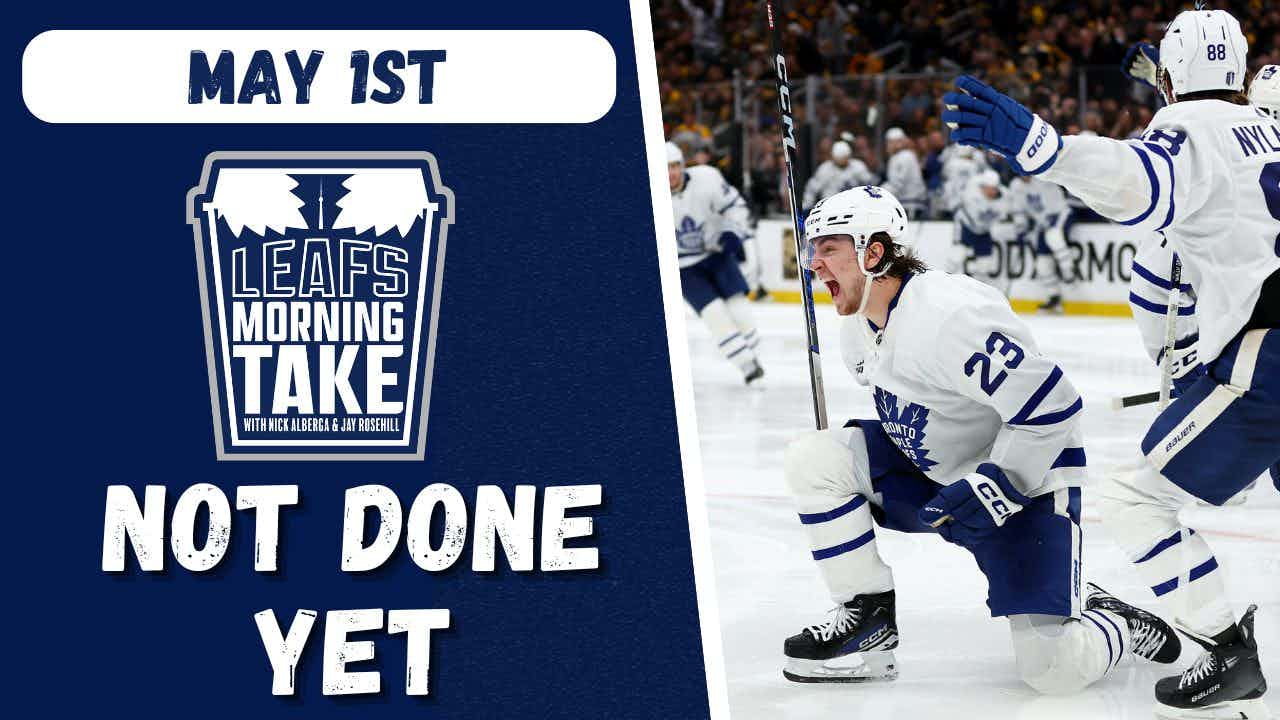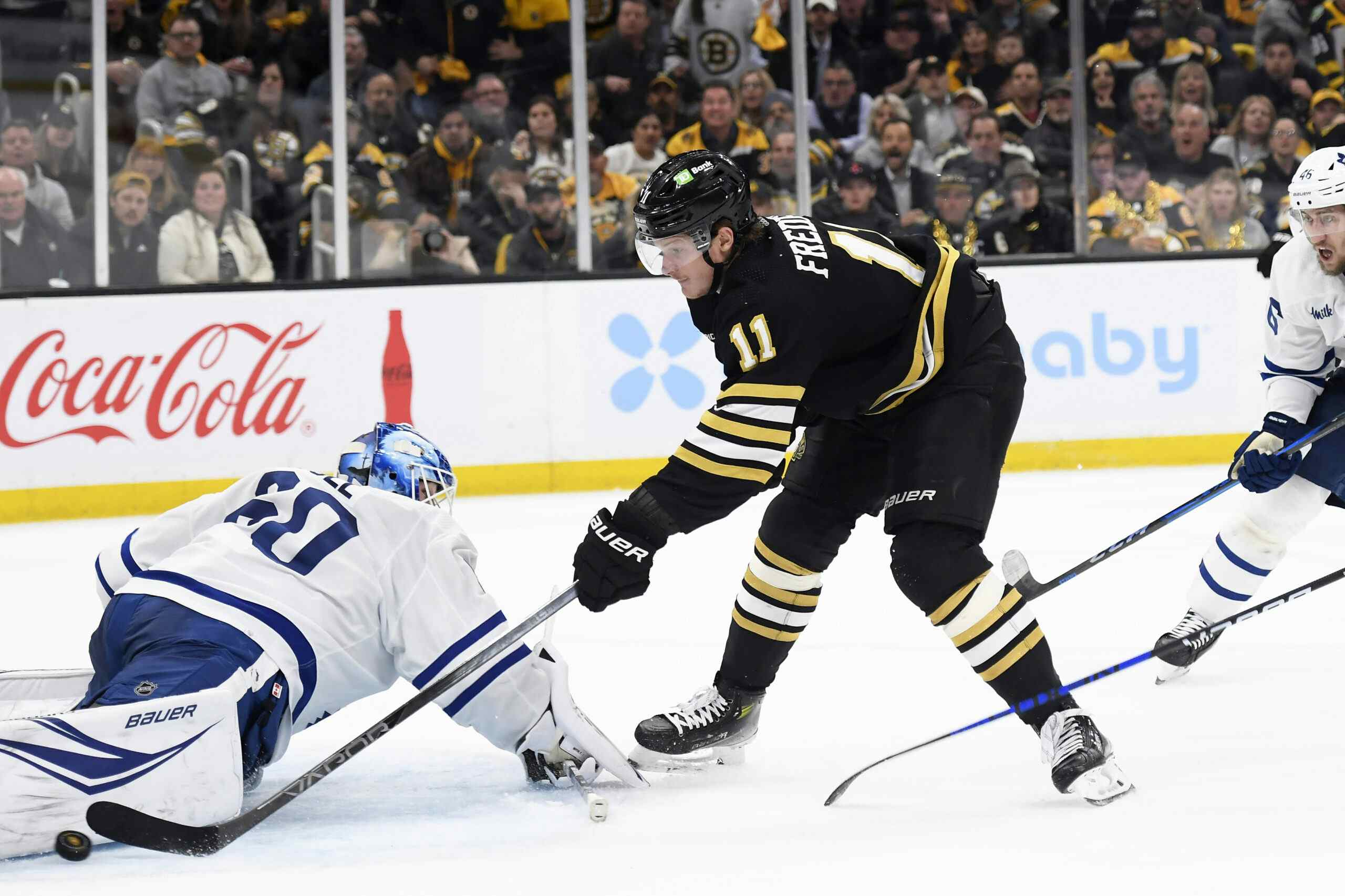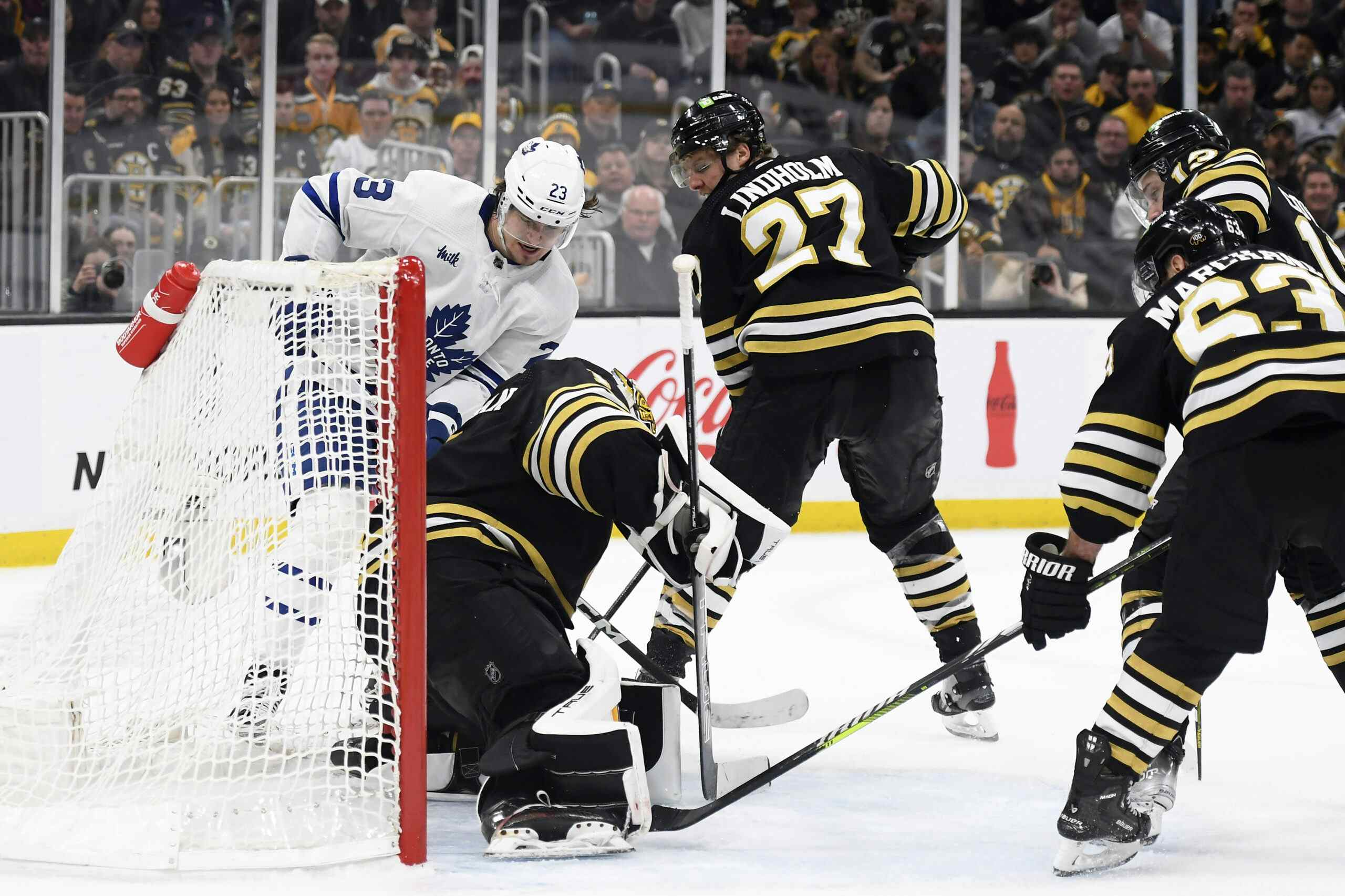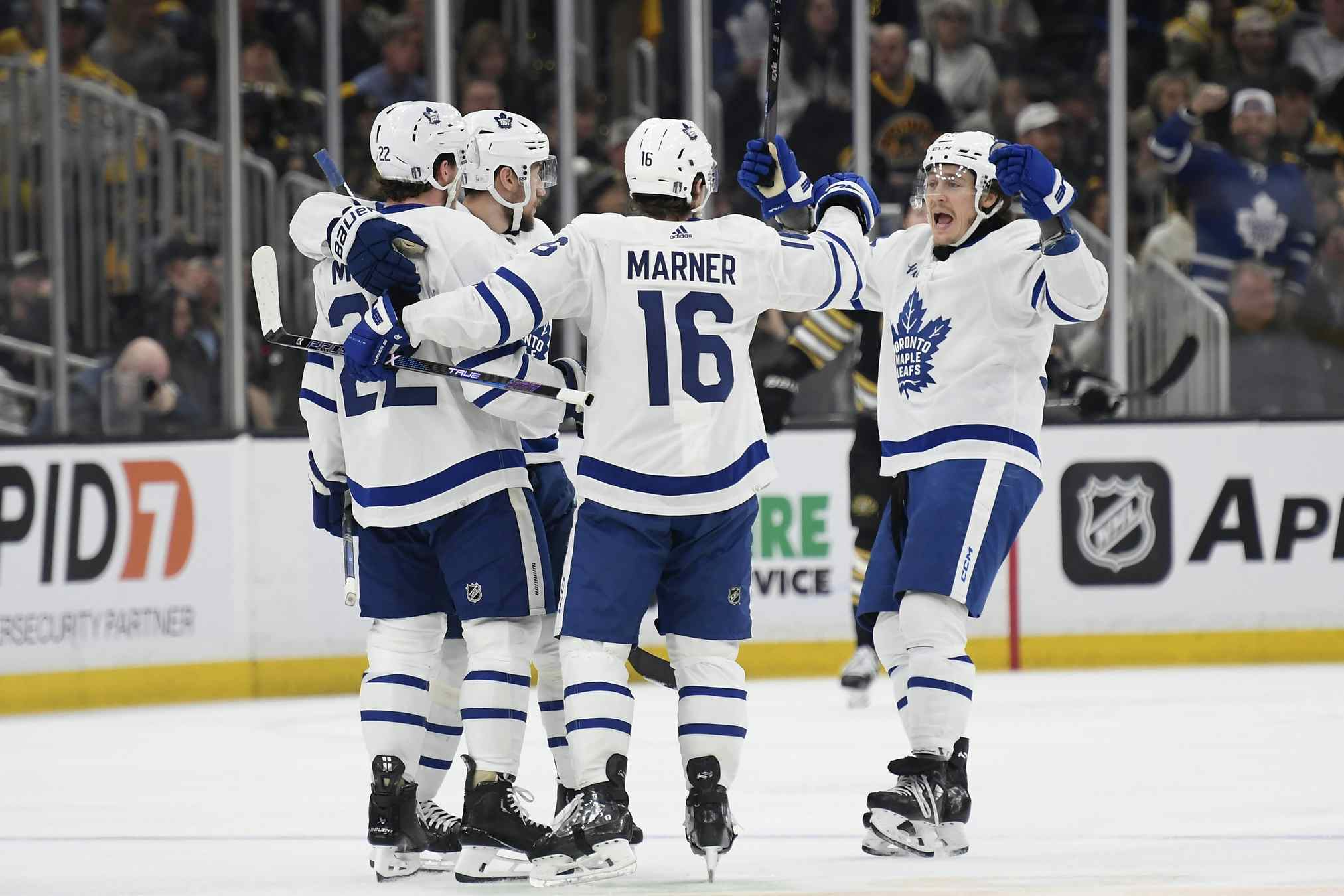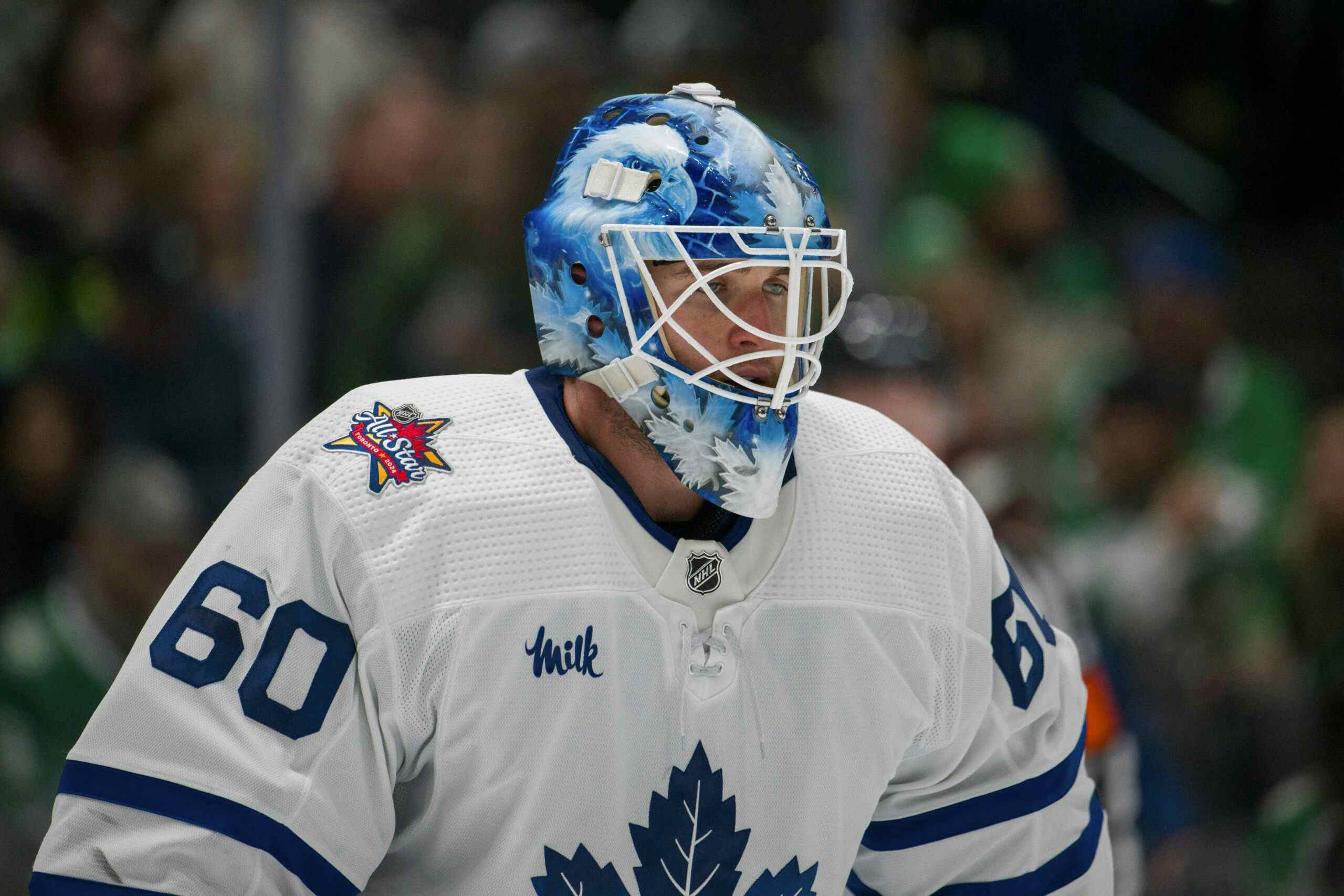Maple Leafs identity: Part II – “The underdog fetish”
By Cam Charron
11 years ago
In our brief search to find the “identity” of the Toronto Maple Leafs, Danny, JP and Ryan posted yesterday about the desire of Torontonians to cheer for a tough, blue-collar team reminiscient of Conn Smythe’s desires back during the good ol’ days. Today, Andrew Bates, Steve Dangle, Matt Wright and Cam Charron all offer their takes on what it means to be a Toronto Maple Leaf.
Andrew
If we were to talk about the Maple Leafs “identity” in the John Ferguson Jr. / Brian Burke era, after wiping away tears, we would all come up with the same word: Losers. That’s not to say that any of the players were losers, just that when they were put together on the ice they, as a group, formed a loser. Now, losers is a fairly PG word for what the Leafs have been since the lockout and we would like to call them worse names but it’s not exactly an identity.
To me there are two identities to a hockey team: good and bad. The good teams find a way to win when they’re down and the bad teams find a way to lose when they’re up. I don’t really believe that being a team that is tough to play against or being a team that finds ways to win when they aren’t at their best are identities. Those are just traits of really good hockey teams. Good hockey teams are tough to play against and good hockey teams are likely still better then most teams even when they are playing at 80 per cent.
If you were to ask me what identity I would like the Leafs to have, it would be a quite simple answer, “They need to be a good team”. I don’t care if they hit more then the other team. I’d actually prefer if they didn’t because that means they have worse possession numbers then the other team. I don’t care if they are a team that comes from behind in the third period a lot because that points to a team that has played poorly in the first two periods. All I ask from the Leafs identity is that they score more goals then the teams they play against. That’s an identity that we can be proud of.

Steve
People have said this current Leafs team has no identity. False. It absolutely has an identity: They lose. It doesn’t matter how, but they lose. They haven’t made the playoffs since 2004. Whether it’s “if only Mats Sundin had a winger” or “if only Phil Kessel had a center,” there always seems to be an excuse. You can’t be afraid of a team like that. You fear Kessel’s shot as one of the league’s deadliest. He doesn’t always connect, but if Dion Phaneuf is locked in, you fear the fact that he can and will kill you. But for the most part, how are you going to fear a hockey team that hasn’t made the playoffs since the first Bush administration?
Once upon a time, Sundin was a leader who was able to put the team on his back. Once upon a time, Doug Gilmour, Gary Roberts, and Steve Thomas poured their heart into every single goal. Once upon time, Wednel Clark, Darcy Tucker, or Tie Domi would go into a borderline psychopathic blood lust if you even said boo to a teammate. Once upon a time, Curtis Joseph and Felix Potvin would steal games the Leafs had no business being in. For such a big, rich team financially, Leafs fans have an underdog fetish. They want players who work so hard, go so above and beyond, that they feel like they owe them. Instead, right now, it’s the fans that are owed a debt.

Matt
The Toronto Maple Leafs are the hottest girl you went to High School with. A younger, less cynical version of yourself saw her as a beacon of hope, a symbol of your future, and something to aspire to. Flash forward to the 7 year reunion, she was so devastated by the retirement of her favorite teacher, Mr. Sundin, that she’s completely let herself go and can’t seem to get her life together. She’s a shell of her former self, unable to establish any place for herself in the real world.
She’s great for nostalgic purposes. She brings back memories of simpler times. You dig up old pictures to remind yourself that at one point, she was the prom queen. But today, in 2012, she’s just someone you spend you spend too much time obsessing over on the internet.
Cam
I haven’t lived in Toronto for very long, nor did I grow up a Leafs fan, but in reading the blurbs from our writers here as well as listening to people in the town, one thing is abundantly clear. Two things, rather. The first is that Torontonians love to talk about the Toronto Maple Leafs. The second is that Torontonians detest the Toronto Maple Leafs.
Not in the sense that they root for them to lose. I don’t think anybody wishes ill upon their own team, but every move is so strongly scrutinized that the positives get lost in the chatter. The Leafs are kicking tires on a young goaltender who spent the last year as a backup? “Bad news, Burkie, he’s not the starting goalie the Leafs need!” The Leafs acquire a big winger from the Philadelphia Flyers? “But what about the goaltending, management?”
These problems are all fixed by winning, but winning just can’t come. I’m not one of those writers who will attempt to blame the fans for not being patient enough to properly rebuild; I think that the last three general managers put in place by the team were the wrong guys to lead a successful rebuild. Brian Burke’s performance should be removed from the efforts of John Ferguson Jr. and Cliff Fletcher alike, as well as those of other Toronto sports teams. The problem is that there’s such a sour attitude towards pro sports in this town that people can’t especially do that.
There was a time when I was growing up when I’d always make sure to get home for the early Hockey Night game (I grew up out West where games start at 4:00 in the afternoon). People resented that it was always the Leafs, as if anybody in the country was willing to watch the Ottawa Senators ever, but the important thing was that the team was good. Watching that was always special because everybody had an opinion. The Leafs didn’t have an identity. They were skilled in the present, blue collar in the past, and since in the past they were statistically more likely to win championships in a six-team league than a 21 or a 30-team league, the past is looked upon with a lot of reverence.
The Leafs are responsible for a lot of the myth-making in hockey. Back in the early days of the Original Six, or so I’ve read, it was English Canada versus French Canada, the skilled Montreal Canadiens teams versus the blue-collar spirit of the Toronto Maple Leafs. And yet in the last period of the real good Leafs teams, commentators who would talk about the Teeder Kennedys or Sweeney Schriners of the world were oblivious to what was happening right in front of them: the Leafs, led by predominantly skill guys like Mats Sundin, Alexander Mogilny, Nik Antropov and Tomas Kaberle were winning games.
The problem with the Leafs may be that, no matter how good they are, they’ll be questioned for what they “are not” rather than for what they “are”. The past creates conflict. It gives us good and evil, the black and white footage symbolic of the “Leafs vs. Habs” rivalry we’ve heard so much about. There was no middle ground. As colour TV has taken over, and the Internet and all these things that make discussion so easy in the 21st century, it’s more obvious than ever that every decision will be held to lofty standards that no team in this current era of hockey can match.
Once you win, you develop your identity. The Leafs of the past still have that identity, as do the Pittsburgh Penguins who represented youth and skill and the Boston Bruins who represented toughness and grit. Style does not dictate the future.
Recent articles from Cam Charron

